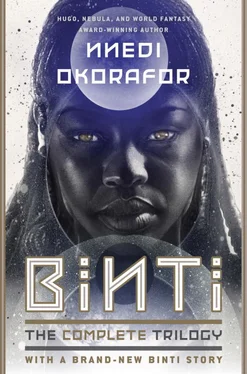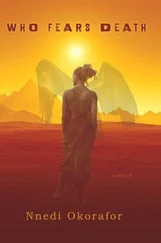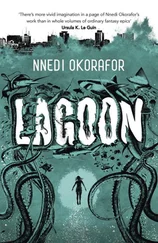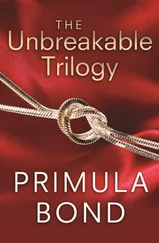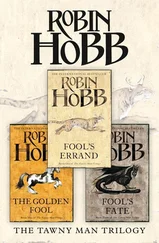“Binti,” I heard the Night Masquerade growl. “Girl. Small girl from big space.”
I moaned, breathless with terror. My oldest brother, father, and grandfather had seen the Night Masquerade at different times in their lives. My father on the night he became the family master harmonizer over two decades ago. My oldest brother on the night he’d fought three Khoush men in the street outside the market when they’d wrongfully accused him of stealing the fine astrolabes he’d brought to sell. And my grandfather, when he was eight years old on the night after he saved his whole village during a Khoush raid by hacking the astrolabes of the Khoush soldiers to produce an eardrum-rupturing sound. Only men and boys were said to even have the ability to see the Night Masquerade and only those who were heroes of Himba families got to see it. No one ever spoke of what happened after seeing it. I’d never considered it. I’d never needed to.
I ran to my travel pod and pulled out a small sealed sack I’d used to store tiny crystal snail shells I’d found in the forest near my dorm on Oomza Uni. I dumped them onto my bed, where they crackled and began to turn from white to yellow as they reacted to the dry desert air. I bristled with annoyance. I’d brought the shells to show my sisters and now they’d be dust in a few minutes.
I pushed them aside and put the pieces of my edan into the transparent sack, wincing at their clinking and clattering. The gold sphere with its fingerprint-like ridges was still warm. I paused for a moment, holding it. Would it melt or burn the sack? I put it inside; the sack was made from the stomach lining of a creature whose powerful stomach juices could digest the most complex metals and stones on the planet. If it could withstand that, it certainly could contain my edan ’s warm core.
I’d just put the sack into my satchel when there came a hard knock at my door. I twitched as the noise sent me back to the ship when the Meduse had knocked so hard on my door. I covered my mouth to hold in the scream that wanted to escape, then I shut my eyes. I took a deep lung-filling breath and let it out. Inhaled again. Exhaled. No Meduse at the door, Binti, I thought. Okwu is outside and it is your friend. The knock came again, followed by my father’s voice calling my name. I ran to the door and opened it and met his frowning eyes. Behind him stood my older brother Bena, also frowning.
“Did you see it?” my father asked.
I nodded.
“ Kai! ” Bena exclaimed, pressing his hands to his closely shaven head. “How is this possible?”
“I don’t know!” I said, tears welling in my eyes.
“What is it?” my mother asked, coming up behind him, rubbing her face. The otjize on her skin was barely a film. Normally only my father would see her like this.
My younger sister Peraa peeked from the staircase. She was the eyes of my family, silent and curious about all things. Had she seen it, too? I wondered.
Somehow, my father knew she was there, and he whipped around to shout, “Peraa, go back to bed!”
“Papa, there are people outside,” she said.
“People?” Bena asked. “Peraa, did you see anything else?”
Before she could respond, my father asked, “What people?”
“Many people,” Peraa said. She was out of breath and looked about to cry. “Desert People!”
“Eh?!” my father exclaimed. “What is happening tonight?” Then he was storming down the hall to the stairs, my brother rushing after him.
“Wait,” my mother said, holding a hand up to me. “Go in, apply otjize . Put on your pilgrimage attire.”
“Why? That’s not for…”
“Do it.”
Peraa was still standing at the top of the staircase, staring at me. I motioned for her to come, but she only shook her head and went downstairs.
My mother’s eyes migrated to my otjize -rolled okuoko .
“Do those hurt?” she asked.
“Only if you hurt them.”
“Why’d you have to do it?”
“Mama, would you rather I died like everyone else on that ship?”
“Of course not,” she said. She seemed about to say more, but instead she just said, “Hurry.” Then she turned and quickly headed down the staircase.
* * *
I applied my otjize and put on my pilgrimage clothes. The otjize would rub off onto my clothes making tonight the outfit’s official event, not my pilgrimage, blessed on this day by my otjize . So be it, I thought. Before I went out to the front door, I snuck to the back of the house. Okwu was waiting for me. “There are people standing around your home,” it said in Meduse.
“I know.” I resisted staring at the desert woman yards away watching us. Tall with dark brown skin that looked so strange to my eyes because she wore no otjize, she looked a few years older than I, possibly in her early twenties. Her bushy hair was a sweet black and it shivered in the breeze.
“I watched them arrive,” Okwu said. “One asked me to come out of my tent. When I did, he spoke to me in Meduse. How do people who live far from water know our language?”
“I don’t know,” I said. “Did… did you see anything near the house? Standing where my window faces?”
“No.”
“Okay,” I muttered, turning from him. “Hold on. I need to see something.” The desert woman watched me as I slowly walked to the spot where the Night Masquerade had been. “I’m just checking something,” I said to her.
“Even if you ran, I’d catch you,” she said in Otjihimba, with a smirk. “You’re why we’re here.” She motioned to Okwu. “And to see that one.”
“Why? What did we do?”
She only chuckled, waving a hand dismissively at me. I stopped at the spot where I was sure the Night Masquerade had been. The sand here was undisturbed, not even a light footprint. It was breezy tonight, but not so much that footprints would disappear in minutes.
“Binti,” I heard my mother call.
“Okwu, meet me in the front,” I said.
“Okay.”
I turned and headed back into the Root.
The Desert People surrounded theRoot the way groups of lake crabs surround their egg-filled holes when the eggs are ready to hatch. There were about seven of them that I could see, probably more on the other side of the house. Some were men, some were women, and all had skin that was “old African” dark, like my father’s and mine. They wore the traditional goat-pelt wraps around their waists, blue waist beads, and blue tops. Around their wrists, they wore bracelets made from shards and chunks of pink salt found in dried lakes deep in the desert. None of them wore shoes.
Straight backed, faces stern, they stood silent. Waiting. And though it was very late in the night, a few neighbors had come out to see what was going on. Of course. By sunup, the village’s bush radio would carry the word to all of Osemba that Desert People had come to the Root. Khoush communities in Kokure might even hear about it. I felt Okwu’s presence not far behind me as it came round the house. I turned and nodded at it.
My father was speaking with a tall old woman. Behind her stood two camels with packs on their backs. I watched for a moment, as the woman’s hands worked wildly while she spoke. Sometimes, she’d stop speaking entirely yet her hands would keep going, moving in circles, jabbing, zigzagging, sometimes harshly, other times gently. This was the way of the Desert People, one of the reasons the Himba viewed them as primitive and mentally unstable. They had no control of their hands; the elders said it was some sort of neurological condition. When the old woman saw me, she smiled and then told my father, “We’ll bring her back by tomorrow night.”
Читать дальше
